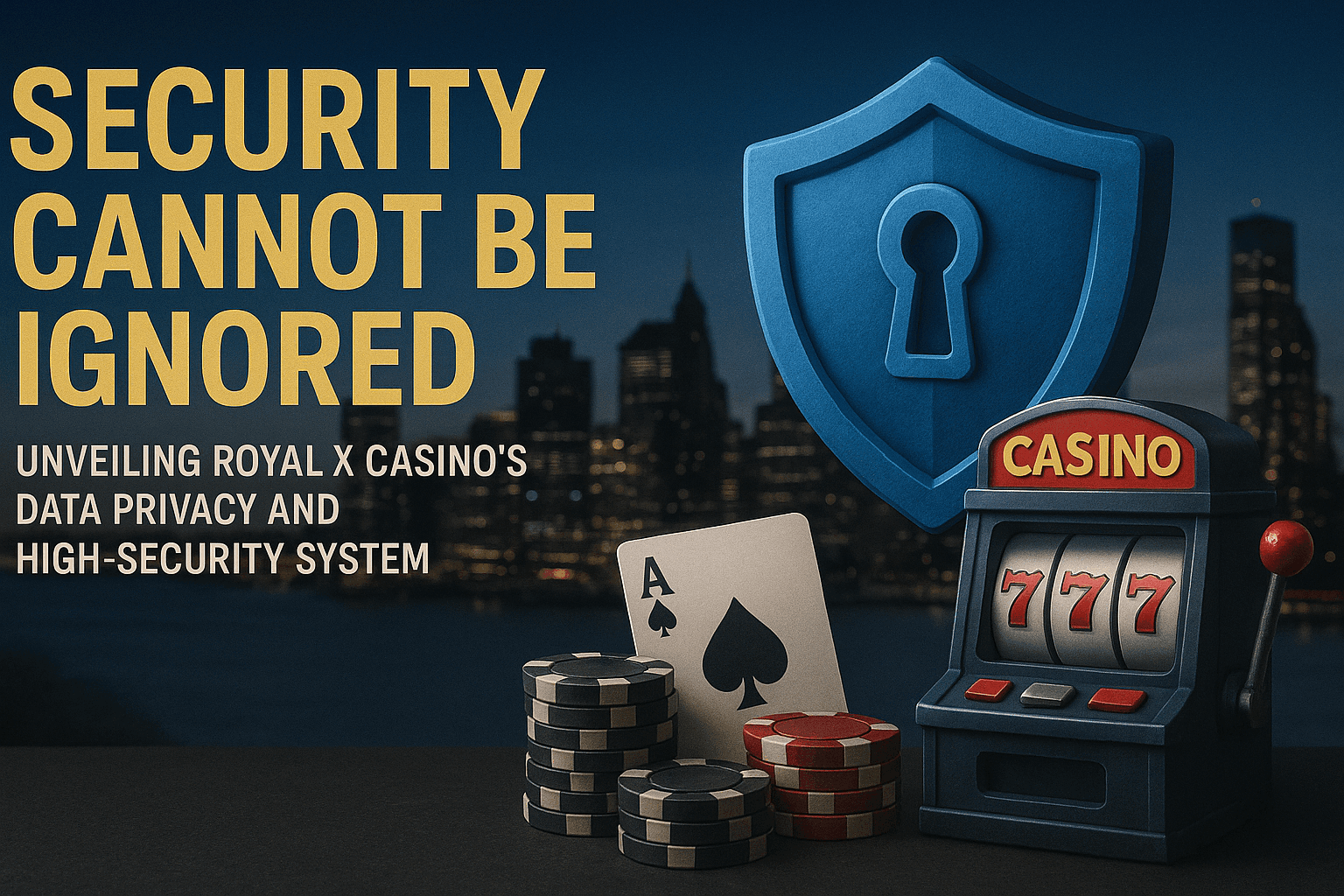Security Cannot Be Ignored: Unveiling Royal x Casino’s Data Privacy and High-Security System
Jul 29, 2025
In the digital era, the security defenses of online entertainment platforms have become the cornerstone of user trust. In 2019, a U.S. online casino group exposed 108 million betting records due to an Elasticsearch server left without password protection, leaking players’ names, addresses, phone numbers, and even bank card details. Winners of large jackpots faced extortion risks. This incident exposed fatal flaws in the gambling industry’s data security and sparked a revolution in next-generation high-security systems. Regulated platforms like Royal x Casino are now building "digital fortresses" against cybercrime through military-grade encryption, dynamic access controls, and real-time threat hunting.

I. The Scars of Data Breaches: Industry Wake-Up Calls
The 2019 Elasticsearch breach revealed systemic vulnerabilities:
- Unsecured Servers: The database was publicly accessible without authentication, exposing names, addresses, phone numbers, account balances, and 108 million bets.
- "Winner Targeting": Though partially encrypted, winners’ personally identifiable information (PII) was fully exposed, making them prime targets for fraud.
- Repeating History: Such breaches are frequent—over 450TB of Elasticsearch data was deleted by hackers in 2017; 32 million Sky Brasil customer records leaked similarly in 2018.
The root cause: hosting sensitive data on unhardened middleware without basic authentication or encryption.
II. Royal x Casino’s Triple-Layered Shield: From Encryption to Zero Trust
To eliminate traditional vulnerabilities, Royal x Casino embeds security at every lifecycle stage:
1. Military-Grade Encryption: Armoring Data
- End-to-End Dynamic Encryption: User login, betting, and payment data secured via AES-256 + RSA-4096 dual algorithms, with keys rotating every 15 minutes.
- Tokenized Storage: Sensitive fields (e.g., bank cards, IDs) replaced with tokens; raw data isolated in Hardware Security Modules (HSMs).
- Quantum Resistance: Integration of post-quantum algorithms (e.g., CRYSTALS-Kyber) to preempt future threats.
2. Intelligent Access Control: The Iron Law of Least Privilege
Replacing static passwords with dynamic authorization:
- Multi-Factor Authentication (MFA): Combines biometrics (fingerprint/face), device certificates, and SMS codes.
- Attribute-Based Access Control (ABAC): Real-time evaluation of user attributes (role/device/IP), resource sensitivity, and risk. VIPs initiating large transfers require additional behavioral biometrics.
- Zero Trust Isolation: Player data segmented by security level; VIP databases physically separated to prevent lateral movement.
Table: Traditional Casinos vs. Royal x Casino Access Controls
| Control Dimension | Traditional Casino | Royal x Casino |
|---|---|---|
| Authentication | Single password | MFA + Biometrics + Device Certs |
| Authorization Model | Role-Based (RBAC) | Attribute-Based (ABAC) |
| Data Isolation | Logical Partitioning | Physical Segmentation |
| Anomaly Response | Manual Review | Real-Time Blocking + Forensics |
3. Real-Time Threat Hunting: AI Sentinels on Guard
The Smart Security Operations Center (SOC) acts as a tireless sentry:
- Behavioral Baselines: ML models profile normal user activity (e.g., login times, bet frequency), blocking deviations (e.g., cross-border transfers at 3 AM).
- Threat Intelligence: Integrates dark web databases to preemptively block leaked credentials, malicious IPs, and attack signatures.
- Automated Response: Upon intrusion attempts, systems isolate accounts, freeze transactions, and initiate forensics in milliseconds.
III. Beyond Technology: Compliance & Transparent Security Culture
Technology is just the foundation; Royal x Casino extends security to ethics:
- GDPR/CCPA Compliance: Data collection follows "minimal necessity" principles; retention periods are defined; one-click data export/deletion supported.
- Red Team Drills: Monthly simulated APT attacks by third-party white hats (e.g., HackerOne), patching vulnerabilities 72h faster than industry average.
- Player Empowerment: Privacy dashboards let users control data sharing and set "cooling-off periods" to limit account activity.
IV. Player Self-Protection Guide: The Final Piece of Collaborative Defense
Platform security requires user collaboration:
- Credential Management: Never reuse passwords; use encrypted vaults like Bitwarden.
- Device Hardening: Regularly update OS; enable full-disk encryption (FileVault/BitLocker).
- Anomaly Monitoring: Enable login alerts; report unauthorized access immediately.
- Least Privilege: On public networks, disable app permissions for "local storage access."
Security Is the Currency of Trust
When 108 million records were left exposed on "naked" servers, the gambling industry paid a heavy reputational price. Royal x Casino proves: Security isn’t a cost—it’s an investment in long-term trust. From quantum encryption to AI-driven defense, zero-trust architecture to transparent governance, the platform transforms security into a silent promise—every click, transaction, and shred of privacy is guarded with digital armor.
As security expert Miranda Raaff states: "Regulated online casinos now use the same technologies as governments and global financial institutions to counter digital threats. Player trust is their bedrock—and they’re pulling out all the stops to protect it."









